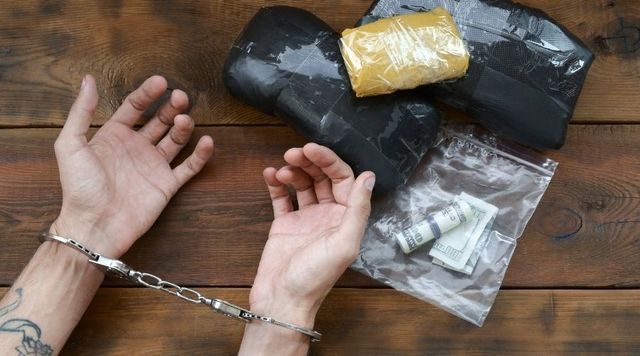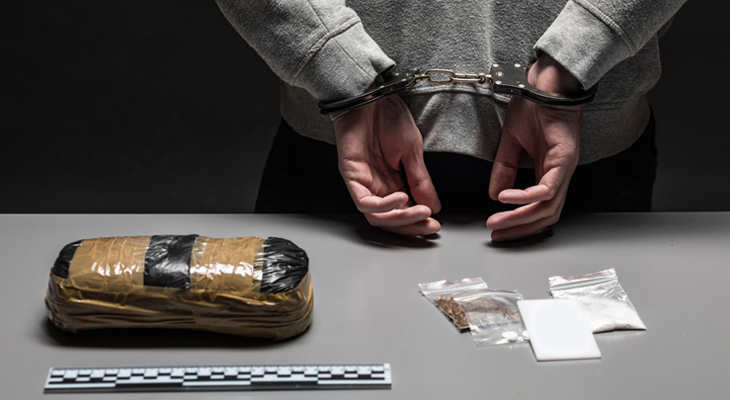Having a simple possession of a drug is illegal, but there are other types of drug possession, which are considered more serious. These types of possession include marijuana, MDMA, and drug trafficking. Have a consultation with a drug possession lawyer in LA for specific information.
Table of Contents
Penalties For Simple Possession
Depending on the type of drug, penalties for simple possession of drugs can range from a fine to jail time. The penalties for drug crimes vary greatly based on the type of drug and the amount of drug possessed.
Simple possession of methamphetamine, for example, can lead to felony charges if the amount of the drug is greater than five grams. Possession of less than five grams can lead to a misdemeanor charge and a fine of up to $5,000.
Attempting to sell a controlled substance is a felony charge. A conviction can result in prison time and a criminal record. The penalties for possession with intent to sell vary greatly based on the type of drug and the amount possessed.
Attempting to deliver a controlled substance is also a felony charge. A conviction can result in a prison term, community service, and drug rehabilitation.
Penalties For Possession With The Intent To Sell
Unlike simple possession of a controlled substance, possession with the intent to sell carries serious penalties. The exact penalties will depend on the type and quantity of the drug, the location where the sale occurred and other factors.
If you have been charged with possession with the intent to sell, you should retain a Stamford criminal defense attorney to help you build your case. A good attorney can help you prove that the charges are unfounded, and may even be able to file a motion to suppress the evidence.
A skilled attorney can also help you explain to prosecutors why the charges are unfounded. You may not have to pay a fine, but you will still be held accountable for your actions. This can include a jail sentence, driver’s license suspension, and other consequences.

Penalties For Possession Of Marijuana
Depending on the type and amount of cannabis involved, the penalties for possession of marijuana under drug possession law vary. A person may face a fine as low as $100 or as high as $1,000, or even a prison term.
The penalties for possession of marijuana vary depending on the type of marijuana, the amount of cannabis involved, and the person’s criminal history. First time offenders may face minor penalties, while repeat offenders may face felony charges. If a person is charged with possession of marijuana under drug possession law, it is important to contact a criminal defense attorney.
First-offense marijuana possession charges can be punishable by a minimum of one year in jail and a $1,000 fine. If a person is convicted of possession of marijuana under drug possession law for the third time, he or she can face up to five years in prison and a $5,000 fine.
Penalties For Possession Of Mdma
Using MDMA, also known as Ecstasy, has a number of serious penalties. For those who use the drug, it can change their perception of the world and their mood. MDMA is a Schedule I controlled substance. This means that it has no accepted medical use, and is a synthetic drug.
The penalty for ecstasy possession varies depending on the quantity of ecstasy possessed and the intention to distribute or sell it. In addition to jail time, it can also result in fines. It’s important to consult with an experienced criminal defense attorney if you’ve been charged with possession of MDMA.
Possession of less than 25 mg of ecstasy is a Class A misdemeanor, while possession of more than 25 mg is prosecuted as a Class C felony. Depending on the offense, a defendant may be required to serve a mandatory probationary period.
Penalties For Drug Trafficking
Depending on the type of drug trafficking or drug possession that is alleged, the defendant may face serious penalties. The penalties for drug trafficking vary depending on the type of drugs involved, the quantity of the drugs, and whether the drug trafficking or drug possession was done through interstate commerce.
The penalties for drug trafficking and drug possession are much greater than those for simple possession. Typically, the prosecution must introduce additional circumstantial evidence such as witness testimony, plastic baggies, or scales at the time of arrest.
If a drug offense is committed by an individual who is knowingly in possession of an illegal controlled substance, the defendant may face a fine of up to $100,000. In addition to monetary fines, defendants may also be subject to fines for drug paraphernalia.

